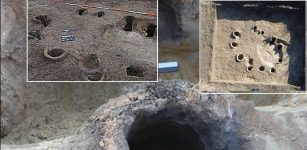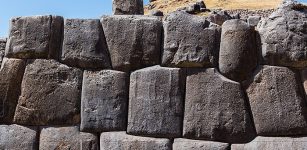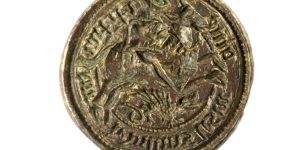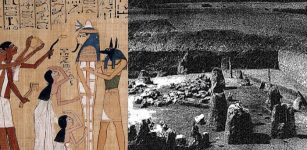Posca: ‘Wine Of The People’ Was Popular In Ancient Rome And Greece
A. Sutherland - AncientPages.com - While pulque (“Drink of the Gods”) is Mexico’s oldest alcoholic beverage of the Maya, Aztecs, Huastec and other cultures in ancient Mesoamerica, posca was the ‘wine of the people’ in ancient Rome and Greece around the second century BC.
At first, posca (the Latin Potor (to drink) or from the Greek epoxos (very sharp), was a medical mixture prepared from sour wine or vinegar with water. Recent studies have shown that posca was actually quite healthy. It had health benefits because it contained vitamin C and its strong acidity easily killed all harmful bacteria. Added flavoring herbs and spices (especially coriander seeds), made posca taste much better.
In ancient Rome, drinking undiluted wine was considered barbaric. Wine concentrate (must) diluted
with water was drunk and posca - the ancient equivalent to cheap 3-2 beer of today - was a particularly common drink among the poorer classes of the society due to its low price and low alcohol content.
Soon the drink also gained popularity among the Roman soldiers and the slaves of ancient Rome.
The widespread use of posca, throughout the Roman period from the 300-200 BC and at the beginning of the Byzantine period, is attested by numerous references in ancient sources such as the natural histories of Pliny the Elder to the comedies of Plautus (second century BC). In the Byzantine army the drink was actually called the phouska.
See also:
Pulque: Ancient Drink Of The Gods Is Popular Again But It Has Odd Side-Effects
Scipio Africanus – Rome’s Greatest General Who Defeated Unbeatable Hannibal
Mead: Secret Drink Of The Vikings And Gods – Was It An Ancient Antibiotic?
Some of the higher ranks of the Romans drinking posca was Scipio Africanus, general and the greatest of the famous Roman family of the Scipios, aristocrats and militaries that commanded armies in the Empire, and Metellus, a prominent politician, who in this way wanted to express their solidarity with army soldiers.
As recorded by biographer, essayist, philosopher, Plutarch (46 AD - 120 AD), yet another posca drinker was a Roman senator and historian, Cato the Elder (234–149 BC) and according to the Roman collection of biographies known as “Historia Augusta”, Hadrian (Roman emperor from 117 to 138) who "actually led a soldier’s life”, was also one of the posca drinkers when in military campaigns.
The same source records that by Hadrian’s time, sour wine was a standard part of the normal "camp fare" (cibus castrensis). Officially, a decree dated to 360 AD instructed that lower ranks of the Roman army should drink posca and wine on alternate days.
No exact recipe for the drink survived until today. However, the drink can be recreated according to this recipe:
Posca recipe
1.5 cups of red wine vinegar.
0.5 cups of honey.
1 tablespoon of crushed coriander seed.
4 cups of water.
Boil it so that the honey dissolves.
Let it cool down so that it reaches room temperature.
Filter the coriander seeds.
Written by – A. Sutherland - AncientPages.com Senior Staff Writer
Copyright © AncientPages.com All rights reserved. This material may not be published, broadcast, rewritten or redistributed in whole or part without the express written permission of AncientPages.com
Expand for referencesMore From Ancient Pages
-
 Similarities And Differences Between Living Spaces Of Neanderthals And Homo Sapiens
Archaeology | Apr 9, 2024
Similarities And Differences Between Living Spaces Of Neanderthals And Homo Sapiens
Archaeology | Apr 9, 2024 -
 Secrets Of The Egyptian Ankh Cross And Its Energy Properties Revealed
Ancient Symbols | Feb 13, 2020
Secrets Of The Egyptian Ankh Cross And Its Energy Properties Revealed
Ancient Symbols | Feb 13, 2020 -
 Why Did Ancient Egyptians Fear The Vizier?
Ancient History Facts | May 24, 2018
Why Did Ancient Egyptians Fear The Vizier?
Ancient History Facts | May 24, 2018 -
 Celts In Poland: Iron Smelting Furnaces Used By Celts 2,400 Years Ago – Unearthed
Archaeology | Nov 30, 2019
Celts In Poland: Iron Smelting Furnaces Used By Celts 2,400 Years Ago – Unearthed
Archaeology | Nov 30, 2019 -
 Bill Of Rights 1689 – Enormous Historical Moment In English History
Ancient History Facts | May 6, 2019
Bill Of Rights 1689 – Enormous Historical Moment In English History
Ancient History Facts | May 6, 2019 -
 New DNA Study Of The Red Lady Of El Mirón Who Lived 19,000 Years Ago
DNA | Feb 7, 2025
New DNA Study Of The Red Lady Of El Mirón Who Lived 19,000 Years Ago
DNA | Feb 7, 2025 -
 30,000-Year-Old Hidden Writing Found At Sacsayhuamán Temple Could Re-Write History
Civilizations | Jun 24, 2014
30,000-Year-Old Hidden Writing Found At Sacsayhuamán Temple Could Re-Write History
Civilizations | Jun 24, 2014 -
 Evidence Humans Used Fire 1 Million Years Ago In Israel Discovered By Artificial Intelligence
Archaeology | Jun 15, 2022
Evidence Humans Used Fire 1 Million Years Ago In Israel Discovered By Artificial Intelligence
Archaeology | Jun 15, 2022 -
 Does This Ancient Box Contain Buddha’s Cremated Remains?
Archaeology | Nov 15, 2017
Does This Ancient Box Contain Buddha’s Cremated Remains?
Archaeology | Nov 15, 2017 -
 Rare Bronze Seal Matrix Of St. George Slaying The Dragon Discovered In French Castle
Archaeology | Mar 22, 2022
Rare Bronze Seal Matrix Of St. George Slaying The Dragon Discovered In French Castle
Archaeology | Mar 22, 2022 -
 Mystery In The Stones: Rujm El-Hiri (Wheel Of Ghosts) Was Not An Ancient Observatory – So Why Was It Built? – New Study
Archaeology | Jan 2, 2025
Mystery In The Stones: Rujm El-Hiri (Wheel Of Ghosts) Was Not An Ancient Observatory – So Why Was It Built? – New Study
Archaeology | Jan 2, 2025 -
 Mysterious 9,000-Year-Old Shaman Burial In Bad Dürrenberg – One Of Central Europe’s Most Spectacular Archaeological Discoveries
Featured Stories | Sep 15, 2023
Mysterious 9,000-Year-Old Shaman Burial In Bad Dürrenberg – One Of Central Europe’s Most Spectacular Archaeological Discoveries
Featured Stories | Sep 15, 2023 -
 Oldest Known Human-Made Nanostructures Found In Ancient Artifacts In Tamil Nadu
Ancient Technology | Nov 23, 2020
Oldest Known Human-Made Nanostructures Found In Ancient Artifacts In Tamil Nadu
Ancient Technology | Nov 23, 2020 -
 Mysterious Tiahuanaco Empire Established By The Sons Of The Sun – An Unknown Chapter Of Prehistory
Ancient Mysteries | Oct 30, 2018
Mysterious Tiahuanaco Empire Established By The Sons Of The Sun – An Unknown Chapter Of Prehistory
Ancient Mysteries | Oct 30, 2018 -
 Early Humans In The Paleolithic Age Had A More Varied Diet Than Previously Assumed
Archaeology | Nov 29, 2023
Early Humans In The Paleolithic Age Had A More Varied Diet Than Previously Assumed
Archaeology | Nov 29, 2023 -
 How Did Hindu God Shiva Get His Third Eye?
Featured Stories | May 13, 2019
How Did Hindu God Shiva Get His Third Eye?
Featured Stories | May 13, 2019 -
 Mystery Of The British Pompeii Deepens – Bronze Age Settlement Destroyed By Dramatic Fire
Archaeology | Jun 23, 2019
Mystery Of The British Pompeii Deepens – Bronze Age Settlement Destroyed By Dramatic Fire
Archaeology | Jun 23, 2019 -
 Secrets About ‘Tennessee’s Ancient Egyptian Temple’ Revealed
Civilizations | Aug 15, 2018
Secrets About ‘Tennessee’s Ancient Egyptian Temple’ Revealed
Civilizations | Aug 15, 2018 -
 Khepri – Egyptian Progenitor God, Spirit Of Life, Resurrection And The Rising Sun
Egyptian Mythology | May 14, 2020
Khepri – Egyptian Progenitor God, Spirit Of Life, Resurrection And The Rising Sun
Egyptian Mythology | May 14, 2020 -
 A Half-A Million-Year-Old Well-Preserved Elephant Tusk Unearthed In Israel
Archaeology | Sep 2, 2022
A Half-A Million-Year-Old Well-Preserved Elephant Tusk Unearthed In Israel
Archaeology | Sep 2, 2022

